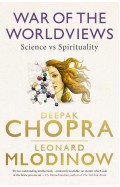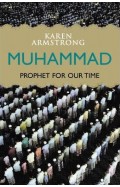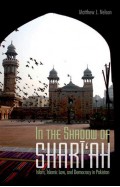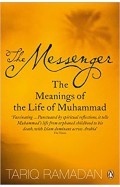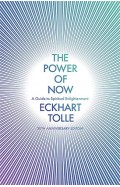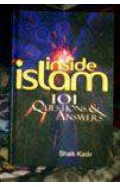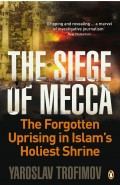- Home
- Books
- Categories
- Non Fiction
- Religion & Spirituality
- Ramadan Essentials
- Islam and the Destiny of Man
Islam and the Destiny of Man
By: Gai Eaton
-
Rs 900.00
Due to constant currency fluctuation, prices are subject to change with or without notice.
ISLAM AND THE DESTINY OF MAN
Islam and the Destiny of Man is a wide ranging study of the Muslim religion from a unique point of view. The aim of this book is to explore what it means to be a Muslim, a member of a community which embraces a quarter of the world’s population and to describe the forces which have shaped the hearts and minds of Islamic peoples. After considering the historic confrontation between Islam and Christendom and analyzing the differences between the three monotheistic faiths (Judaism, Christianity and Islam), the author describes the two poles of Muslim belief in terms of ‘Truth’ and ‘Mercy’– unitarian truth which is the basis of the Muslim’s faith and the mercy inherent in this truth. In the second part of the book, he explains the significance of the Qur’ān and tells the dramatic story of Muhammad’s life and of the early Caliphate. Lastly, the author considers the Muslim view of man’s destiny, the social structure of Islam, the role of art and mysticism and the inner meaning of Islamic teachings concerning the Hereafter. Throughout this book the author is concerned not with the religion of Islam in isolation, but with the very nature of religious faith, its spiritual and intellectual foundations, and the light it casts upon the mysteries and paradoxes of the human condition.
| Book | |
| What's in the Box? | 1 x Islam and the Destiny of Man - |
ISLAM AND THE DESTINY OF MAN
Islam and the Destiny of Man is a wide ranging study of the Muslim religion from a unique point of view. The aim of this book is to explore what it means to be a Muslim, a member of a community which embraces a quarter of the world’s population and to describe the forces which have shaped the hearts and minds of Islamic peoples. After considering the historic confrontation between Islam and Christendom and analyzing the differences between the three monotheistic faiths (Judaism, Christianity and Islam), the author describes the two poles of Muslim belief in terms of ‘Truth’ and ‘Mercy’– unitarian truth which is the basis of the Muslim’s faith and the mercy inherent in this truth. In the second part of the book, he explains the significance of the Qur’ān and tells the dramatic story of Muhammad’s life and of the early Caliphate. Lastly, the author considers the Muslim view of man’s destiny, the social structure of Islam, the role of art and mysticism and the inner meaning of Islamic teachings concerning the Hereafter. Throughout this book the author is concerned not with the religion of Islam in isolation, but with the very nature of religious faith, its spiritual and intellectual foundations, and the light it casts upon the mysteries and paradoxes of the human condition.
Zubin Mehta: A Musical Journey (An Authorized Biography)
By: VOID - Bakhtiar K. Dadabhoy
Rs 840.00 Rs 1,050.00 Ex Tax :Rs 840.00
The Quest For Meaning: Developing A Philosophy Of Pluralism
By: Tariq Ramadan
Rs 1,116.00 Rs 1,395.00 Ex Tax :Rs 1,116.00
In the Shadow of Shari'ah: Islam, Islamic Law and Democracy in Pakistan
By: Matthew J Nelson
Rs 2,316.00 Rs 2,895.00 Ex Tax :Rs 2,316.00
The Messenger: The Meanings of the Life of Muhammad
By: Tariq Ramadan
Rs 2,595.00 Ex Tax :Rs 2,595.00
No recently viewed books available at the moment.
Zubin Mehta: A Musical Journey (An Authorized Biography)
By: VOID - Bakhtiar K. Dadabhoy
Rs 840.00 Rs 1,050.00 Ex Tax :Rs 840.00















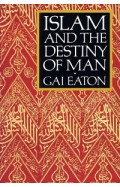
-120x187.jpg?q6)







